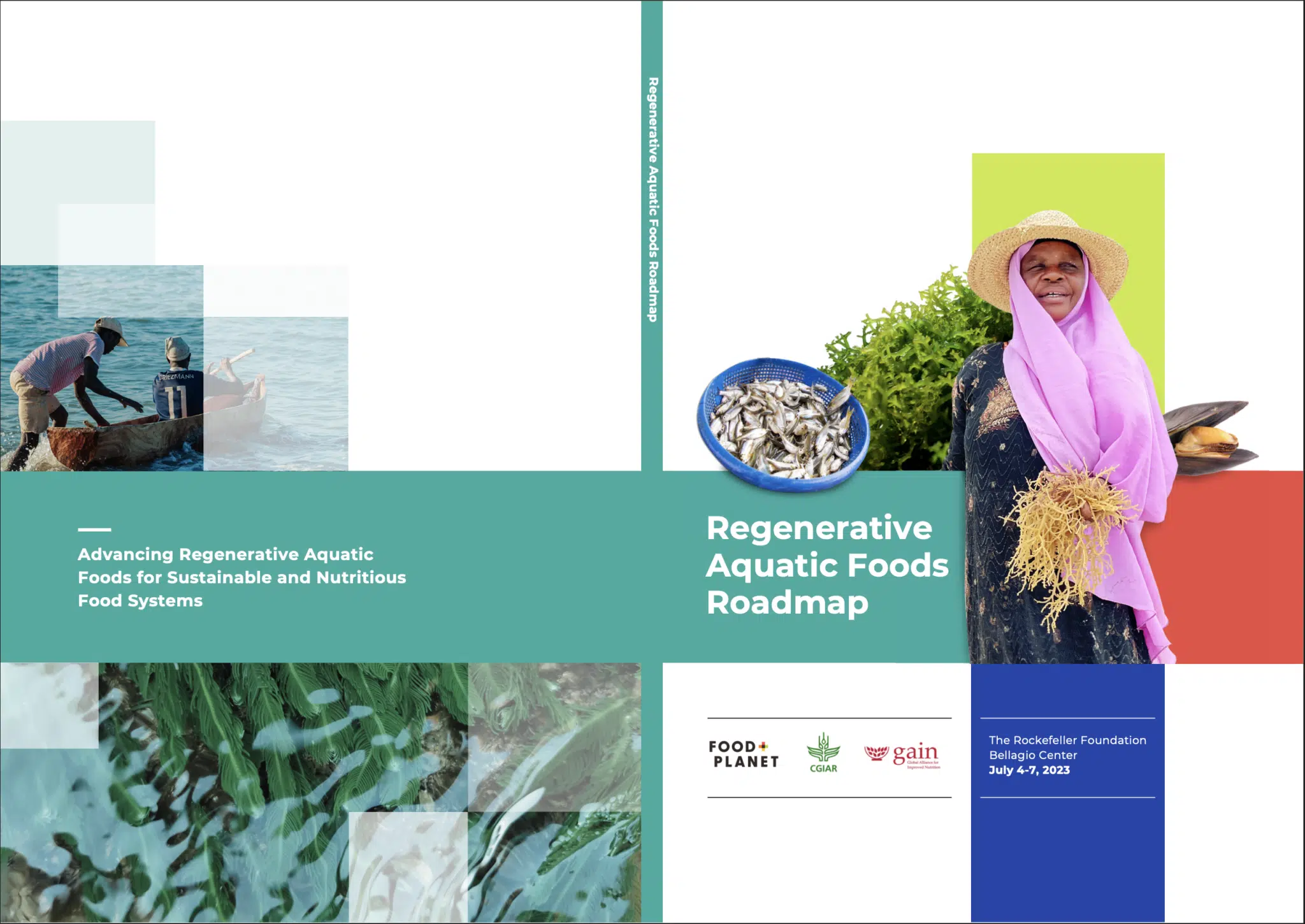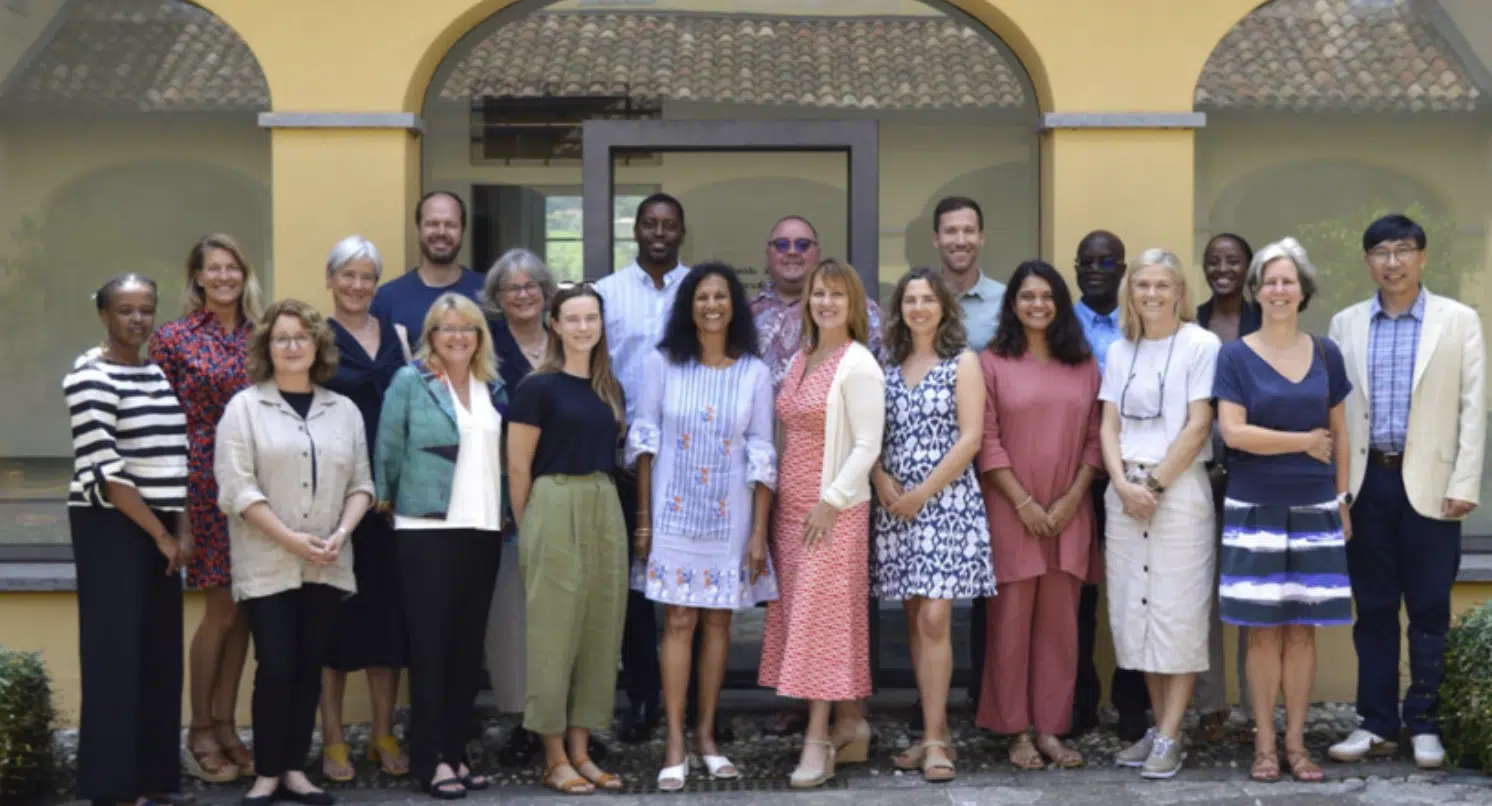1 February 2024. Global Collaboration Leads the Way for Advancing Regenerative Aquatic Foods
Roadmap Release:
Food Planet, GAIN (2024) Regenerative Aquatic Foods: A Roadmap to Action # 18 p.
Host Organizations: Food + Planet; GAIN; CGIAR; with convening support from The Rockefeller Foundation's Bellagio Center
Host Organizations: Food + Planet; GAIN; CGIAR; with convening support from The Rockefeller Foundation's Bellagio Center
Global food security and nutrition trends reveal a mix of progress and setbacks. While agricultural productivity, technology, and policies show improvement, food insecurity, declining diet quality, and reduced diversity currently result in over two billion people experiencing vitamin and mineral deficiencies. In addition, our food system is putting the planet's health in jeopardy, marked by biodiversity loss, degraded soil, poor air and water quality, and extensive greenhouse gas emissions, accelerating climatic changes.
Regenerative aquatic foods such as seaweeds, bivalves (clams, oysters, mussels), and small pelagic fish emerge as a promising solution towards improving nutrition and enhancing aquatic ecosystems.
This Regenerative Aquatic Foods Roadmap goes beyond being a document; it's a call to action.
This Regenerative Aquatic Foods Roadmap goes beyond being a document; it's a call to action.
By collating top strategies from leading global experts, this roadmap provides a structure for advancing regenerative aquatic foods within sustainable and nutritious food systems across five high-level thematic areas.
Policymakers, researchers, implementers, and the public are invited to explore and utilize this roadmap. Accelerate the transformation of our aquatic systems to benefit both people and the planet globally, across diverse geographical and contextual settings.
Convening Participant Organizations
(listed in alphabetical order): African Development Bank; CGIAR; Conservation International Ventures; Environmental Defense Fund; Food + Planet; German Federal Institute for Risk Assessment; Global Alliance for Improved Nutrition (GAIN); Incheon National University; Indigenous Aquaculture Collaborative and Kuaʻāina Ulu ʻAuamo; Rockefeller Foundation; The Good Ocean; The Nature Conservancy; United Nations Food and Agriculture Organization; University of British Columbia



No comments:
Post a Comment